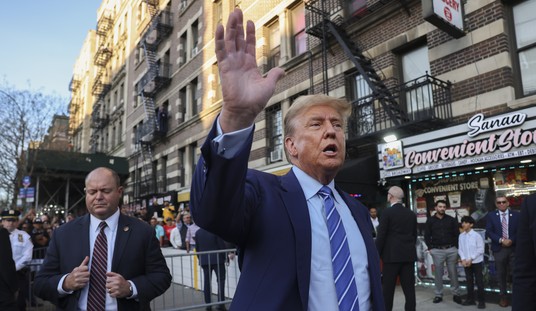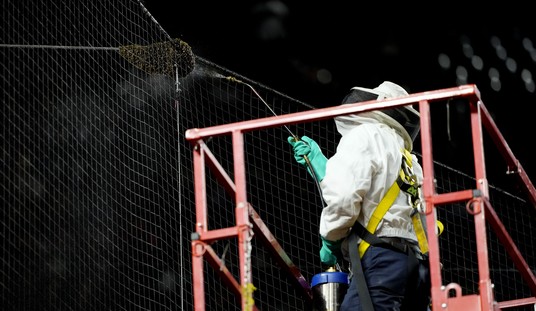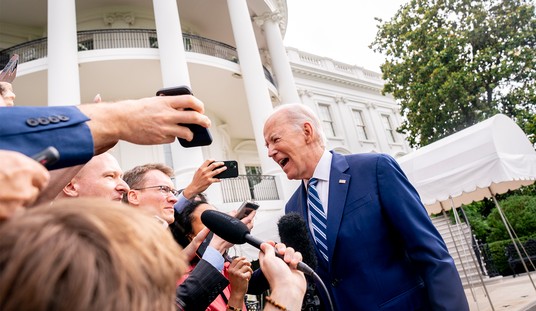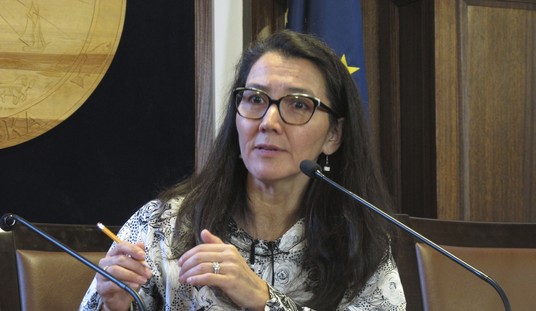One of my colleagues over at Hot Air, Ed Morrissey wrote in March about the reemergence of negotiations between Iran and the United States on the so-called JCPOA — the terrible nukes deal put in place by President Barack Obama, which Donald Trump wisely removed us from during his tenure:
Now, however, the US and EU apparently think that the appropriate response to a Tehran-Moscow combine is to create a hole for sanctions avoidance.
[…]
In fact, it’s so bad — especially after Iran’s missile attacks near our consulate in Irbil — that even one House Democrat wanted Biden to put an end to negotiations.
Ed shared Virginia Rep. Elaine Luria’s tweet on her serious concerns in the wake of the attack.
I’m continuing to monitor reports of an attack on our consulate in Irbil.
If reports are accurate, the Biden Administration must withdraw its negotiations with Iran. We cannot re-enter a failed JCPOA to further empower Iran and threaten global security.
RedState also reported on another voice, Gabriel Noronha, former State Department special adviser for Iran under Secretary of State Mike Pompeo, waving a red flag about how bad the deal was the Biden Administration appeared to be on the verge of agreeing to. Noronha wrote a scathing op-ed at Tablet titled “This Isn’t Obama’s Iran Deal. It’s Much, Much Worse.”
But Noronha wasn’t finished, according to reporting by the Washington Free Beacon later in March. WFB shared that “Russia is being awarded a financial lifeline via the nuclear agreement, undermining international efforts to isolate Moscow,” with the U.S. allowing Rosatom, “Russia’s top state-controlled energy company” to proceed with a $10 billion nuclear energy project in Iran.
He told the WFB:
“Rosatom’s projects in Iran are crucial to the company’s future financial viability—that’s exactly why we should shut them down by disrupting their foreign contracts—especially those with a regime like Iran.
We’re doing the opposite. The United States should sanction Rosatom for its involvement in Russia’s war on Ukraine, but in classic fashion, we’re giving them full sanctions immunity that will stabilize Rosatom’s finances.”
Now, Sen. Joe Manchin (D-WV) is sounding the alarm, in a new letter addressed to Secretary of State Antony Blinken, on word that the negotiated deal would not only ease financial sanctions but remove Iran’s notorious state-sponsored terrorist group “Islamic Revolutionary Guard Corps (IRGC) from the State Department’s Foreign Terrorist Organization list” (full text below, via Manchin’s official homepage):
Senator Joe Manchin writes to Secretary of State Antony Blinken regarding Iran nuclear negotiations. Says he particularly concerned about reports that the Biden administration is considering removing the IRGC from the Foreign Terrorist list pic.twitter.com/KEaKqBqKiH
— Moshe Schwartz (@YWNReporter) April 19, 2022
Dear Secretary Blinken:
I remain very concerned about your ongoing negotiations with Iran regarding a return to the Joint Comprehensive Plan of Action (JCPOA) and request a detailed briefing on the status of those talks. While I support President Biden’s commitment to reengaging the Government of Iran in diplomacy, we should not reward Iran with sanctions relief before they demonstrate verifiable efforts towards curbing their malign influence holistically; including their nuclear ambitions. terrorism financing, and dual-use weapons development.
I am particularly worried about reports that you might be considering removing the Islamic Revolutionary Guard Corps (IRGC) from the State Department’s Foreign Terrorist Organization list in the hopes that trade relations can be reestablished with Iran to assist with our energy crisis. Let me be clear. the IRGC is a terrorist organization. We must not be shortsighted in the use of sanctions relief to mitigate our present energy challenges. Sanctions are our primary leverage to facilitate agreements on halting malign Iranian actions and should not be used to achieve non-strategic objectives. Instead. we should continue to invest in an all-of-the-above domestic energy policy to bolster our national security and our ability to help our allies and partners abroad. Congress has the opportunity to pass additional bipartisan energy legislation to further expand our ability to deliver the energy our allies and partners need. We cannot and should not look to Iran to solve our energy problems.
For decades, the Iranian leadership has chosen to direct its government’s efforts and willpower toward destabilizing the Middle East and Africa through terrorism financing, which has resulted in thousands of deaths, including the deaths of U.S. servicemembers. Likewise. the development of dual-use technologies like ballistic missiles that could be used as a delivery system for nuclear warheads remains an ongoing concern. If these activities are allowed to continue. Iran could become a nuclear weapons power leading to a nuclear arms race in the region. Each of these examples demonstrates an alarming lack of sincerity on Iran’s part and highlights the importance of thoroughly analyzing the various threats Iran can and will present to regional and international stability both today and after the expiration of the JCPOA. I agree we must halt the progress of Iran’s nuclear weapons program. However, we must continue to negotiate a halt to Iran’s use of state-sponsored terrorism, advancement of its missile program, and the continued proliferation of dual-use technologies.
Just as I did in 2015, I respectfully request this detailed briefing to reach as informed a decision as possible. I hope that Congress will be given the due process it deserves in weighing in on such an immense foreign policy decision. I was disappointed in the outcome of the negotiations in 2015, and I will do everything in my power to ensure we do not repeat the mistakes of the past.













Join the conversation as a VIP Member